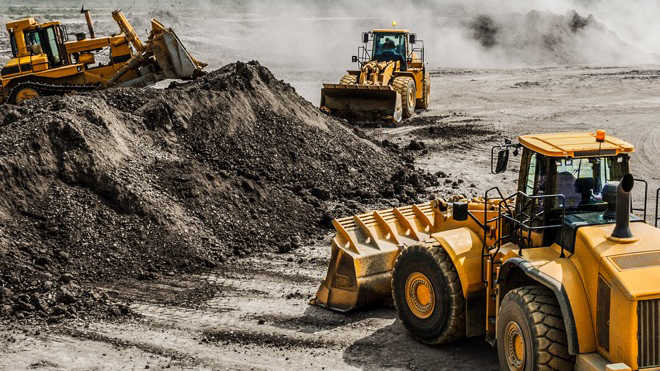Boom Lift Rental: Reach New Levels Securely
Wiki Article
Renting Vs. Buying Building Equipment: Making the Right Selection for Your Job
When getting started on a building task, one of the vital decisions that project stakeholders and supervisors deal with is whether to lease or get building and construction equipment. The choice hinges on different variables such as expense considerations, job duration, tools upkeep, scalability, risk, and versatility management.Expense Considerations
Renting out devices typically requires lower preliminary settlements compared to purchasing, making it an appealing alternative for short-term jobs or professionals with spending plan constraints. In the long run, continually leasing equipment can collect greater prices than buying, especially for prolonged projects.On the other hand, buying building and construction tools involves greater upfront prices yet can cause long-term cost savings, specifically for long-lasting tasks or frequent users. Possessing devices gives adaptability, comfort, and the capacity for resale worth once the job is finished. Additionally, having tools permits for personalization and knowledge with specific machinery, potentially enhancing efficiency and productivity on-site. Eventually, the decision between leasing and acquiring building and construction equipment depends upon the job's duration, frequency of use, spending plan factors to consider, and long-lasting monetary goals.
Job Period

On the other hand, for long-lasting jobs or ongoing construction work, acquiring tools can be the much more cost-effective alternative. Investing in tools can lead to set you back savings over time, specifically if the equipment will be often made use of. In addition, owning tools provides a sense of control over its availability and enables for personalization to fit particular project needs.

Equipment Maintenance
Given the important duty project duration plays in figuring out the most cost-efficient technique in between renting and buying construction tools, the focus now shifts towards taking a look at the essential facet of devices maintenance. Proper upkeep is crucial for making certain the ideal performance and longevity of building tools. Renting equipment frequently includes the benefit of having actually well-kept machinery provided by the rental business. This can reduce the burden of upkeep tasks from the task owner or service provider, saving time and initiative. On the various other hand, having equipment calls for a positive approach to maintenance to stop breakdowns, make sure security, and extend the devices's lifespan. Normal assessments, maintenance, and timely fixings are needed to keep owned devices in leading functioning condition. Consider maintenance costs when determining in between renting out and getting, as disregarding maintenance can result in pricey repair services, downtime, and task hold-ups. Ultimately, a well-kept construction tools fleet, whether rented or owned, is essential for the effective and efficient conclusion of building right here and construction projects.Adaptability and Scalability
In the world of building devices management, the aspect of flexibility and scalability holds considerable relevance for task efficiency and resource utilization. Choosing to lease building and construction equipment provides a high level of versatility as it enables for the quick modification of equipment kinds and quantities based on the developing requirements of a job.Furthermore, scalability, one more important factor, is naturally connected to flexibility. Renting building tools uses the advantage of easily scaling procedures up or down as job needs vary. Professionals can swiftly exchange or add tools to match the job's altering requirements without the restraints of having assets that might come to be underutilized or out-of-date. This capacity to range resources efficiently can cause expense savings and improved job timelines, making renting a beneficial choice for tasks requiring versatility and receptive source allotment.
Danger Monitoring
Efficient risk monitoring in building and construction equipment operations is paramount to making sure task success and mitigating prospective economic losses. Building projects naturally entail different threats, such as equipment break downs, mishaps, and task hold-ups, which can significantly impact the project timeline and budget. By thoroughly taking into consideration the threats connected with owning or leasing building and construction tools, project supervisors can make informed decisions to minimize these possible hazards.Leasing building equipment can use a level of risk reduction by moving the responsibility of repair and maintenance to the rental firm. This can lower the financial concern on the task proprietor in situation of unexpected tools failures (aerial lift rental). Furthermore, leasing gives the flexibility to accessibility specific devices for certain project phases, decreasing the threat of having underutilized equipment
On the various other hand, owning building devices gives a feeling of control over its usage and maintenance. However, this additionally implies birthing the full foundation equipment obligation for repairs, upkeep costs, and depreciation, increasing the financial dangers connected with tools possession. Cautious danger evaluation and consideration of aspects such as task duration, devices use, and upkeep requirements are crucial in identifying the most suitable alternative for effective threat monitoring in building jobs.
Conclusion
Finally, when determining between leasing and purchasing building equipment, it is necessary to think about expense, project period, tools maintenance, danger, versatility, and scalability management. Each aspect plays an important role in figuring out the most suitable alternative for the job available. By very carefully evaluating these aspects, project supervisors can make an enlightened decision that lines up with their budget plan, timeline, and general project objectives.
Report this wiki page